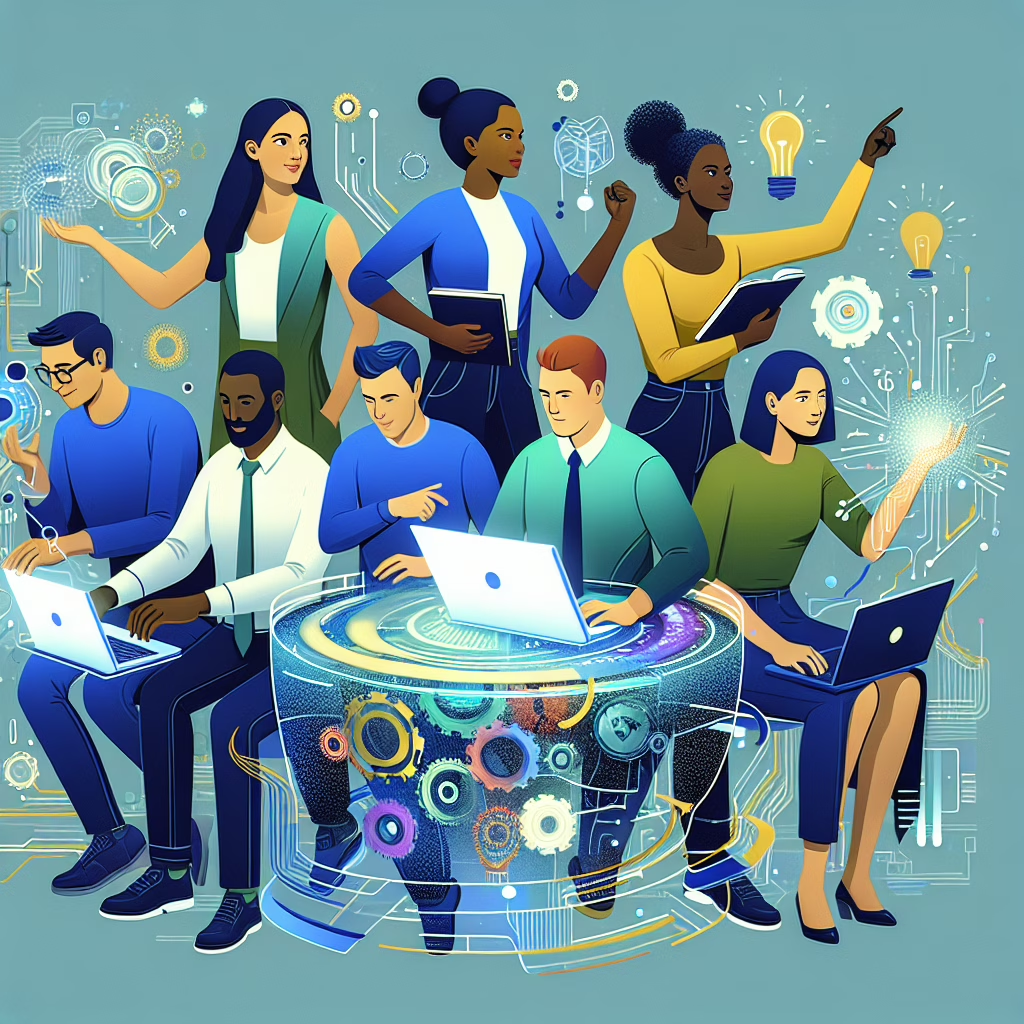In a world where the term ‘selfish’ often feels like it’s printed on our collective birth certificates, Demis Hassabis, the CEO of Google DeepMind, is stepping up with a refreshing twist. He believes that artificial intelligence (AI) could help us evolve into less selfish beings. That’s right! In this whimsical journey into the realm of AI, we explore how this technology might just nudge humanity toward a more collaborative future.
Demis Hassabis: The Visionary Behind AI
Demis Hassabis isn’t just another tech mogul; he’s a veritable wizard of AI. With a background that reads like a superhero origin story—child chess prodigy, video game designer, neuroscientist—he brings a unique perspective to the conversation about AI and its role in society. At the core of his philosophy is the idea that as we continue to develop AI, we might also develop our sense of community and cooperation.
The Power of Collaboration with AI
Imagine a world where AI helps us work together seamlessly. No more petty squabbles over who gets to pick the restaurant or who forgot to take out the trash! Hassabis envisions a future where AI enhances our ability to collaborate effectively. With algorithms that can analyze vast amounts of data, we could learn to make decisions that benefit not just ourselves but also our communities.
This notion isn’t far-fetched. Think about it: when faced with complex problems, humans often resort to individualistic solutions. But what if AI acted as our collaborative coach? By providing insights and facilitating discussions, it could encourage us to consider the greater good rather than just our personal gain. In other words, you might still want to order pizza for dinner, but at least you’d think about whether your friends prefer pepperoni or vegan!
AI’s Role in Shaping Our Values
Hassabis argues that as we integrate AI deeper into our lives, it can influence our values and behaviors. By leveraging its power for social good, AI could potentially make altruism trendy! Picture this: hashtags like #BeKind becoming as viral as cat videos. If social media influencers can motivate millions to adopt better habits through their posts, imagine what AI could do with its data-driven insights!
Moreover, with AI in the mix, we might find ourselves participating in more community-driven projects. Think of an app that connects neighbors for group clean-ups or shared gardening projects powered by AI recommendations on best practices. It’s not just about getting things done; it’s about fostering a sense of belonging.
The Ethics of AI and Human Behavior
Of course, with great power comes great responsibility—or so they say in comic books! As we harness the capabilities of AI, ethical considerations become paramount. We must ensure that these technologies promote positive social behaviors rather than exacerbate existing inequalities or selfish tendencies.
Demis Hassabis emphasizes the importance of responsible AI development. After all, if we’re going to trust machines to guide us towards greater kindness, we need to ensure they’re programmed with sound ethics and values themselves. Developers must prioritize inclusivity and transparency to prevent biased outcomes that could lead us right back to square one—selfishness!
The Road Ahead: A More Collaborative Future?
As we look toward 2025 and beyond, the prospect of living in an AI-enhanced world raises exciting possibilities. Could we really become less selfish? Hassabis is optimistic that through collaboration and shared goals fostered by AI, humanity can rise to meet these challenges head-on.
So next time you find yourself arguing over who gets the last slice of cake at a party (we all know it’s usually you), remember that perhaps one day soon, your friendly neighborhood AI will be there to mediate—or at least suggest an equitable solution involving equal cake distribution!
In conclusion, while we may still be grappling with our selfish tendencies today, there is hope on the horizon thanks to visionary thinkers like Demis Hassabis and the advancements in AI technology. Who knows? In a few years’ time, we may just surprise ourselves by becoming better humans—one algorithm at a time.
What do you think? Can AI truly help us overcome our self-centered ways? Share your thoughts below!
Special thanks to Wired for inspiring this article!
Further Insights on AI’s Impact
To deepen our understanding of how AI can facilitate collaboration and ethical considerations, it’s worth exploring related topics:
- Nvidia CEO Jensen Huang’s breakthrough insights on technology.
- Microsoft’s shift towards Linux and its implications for tech development.
- Changes in Windows 11 that relate to user experience.
- AI Activists rethink strategy amidst changing industry dynamics.
- The rise of ‘vibe hacking’ and its relevance to ethical AI.
By exploring these realms, we can gain a clearer perspective on how technology, including AI, can promote a more cooperative society.

